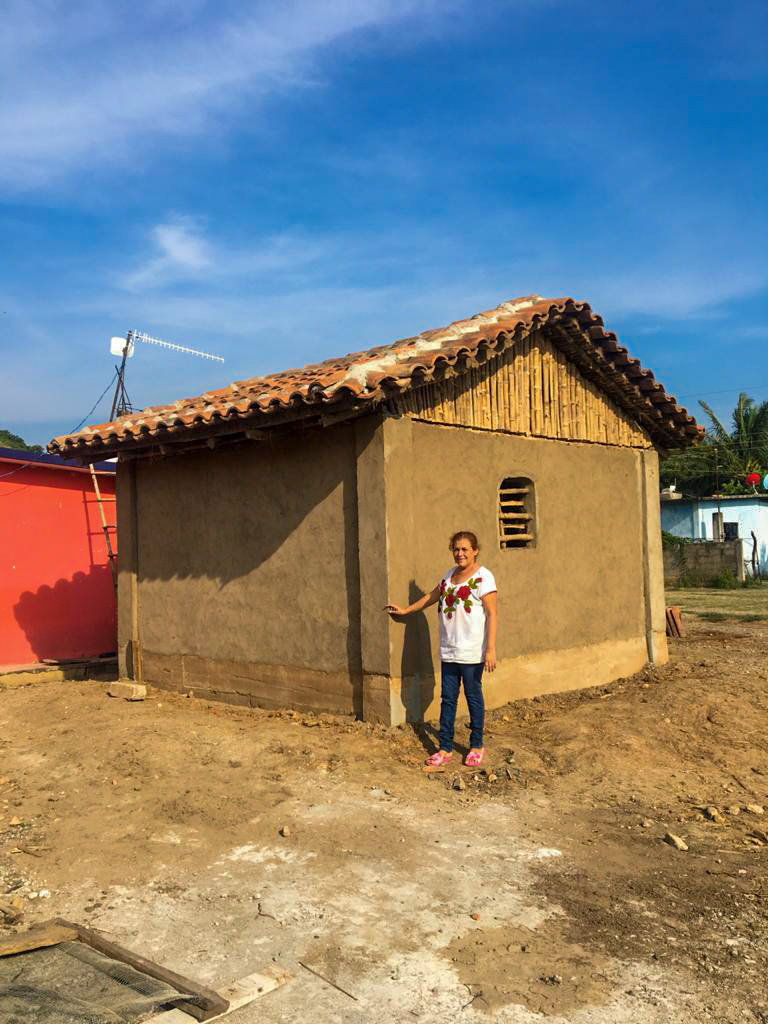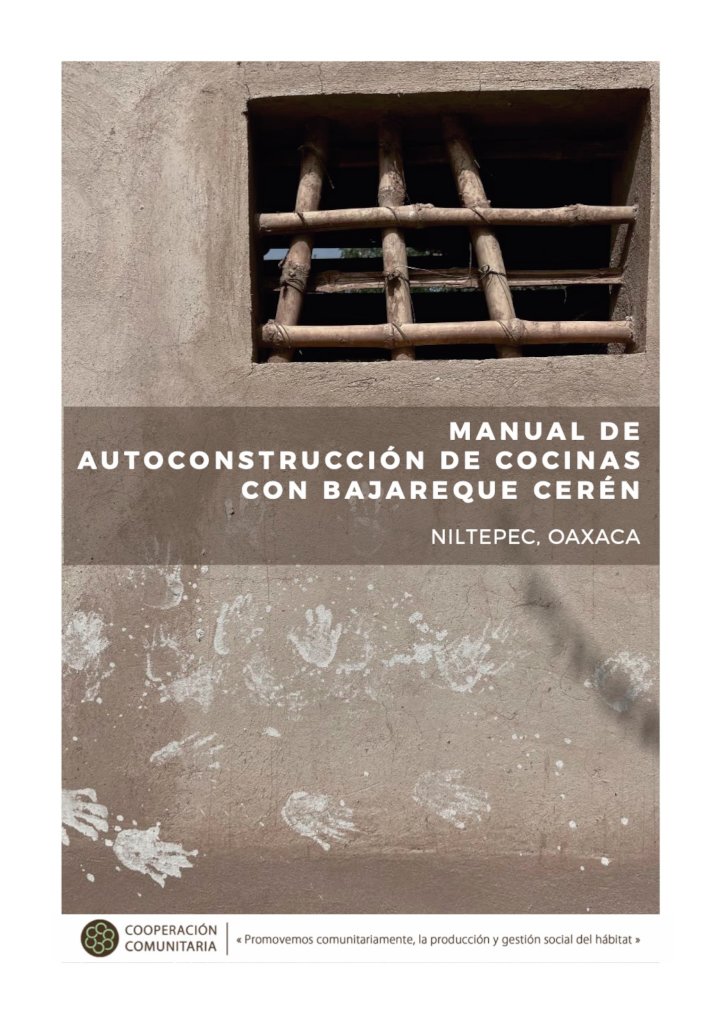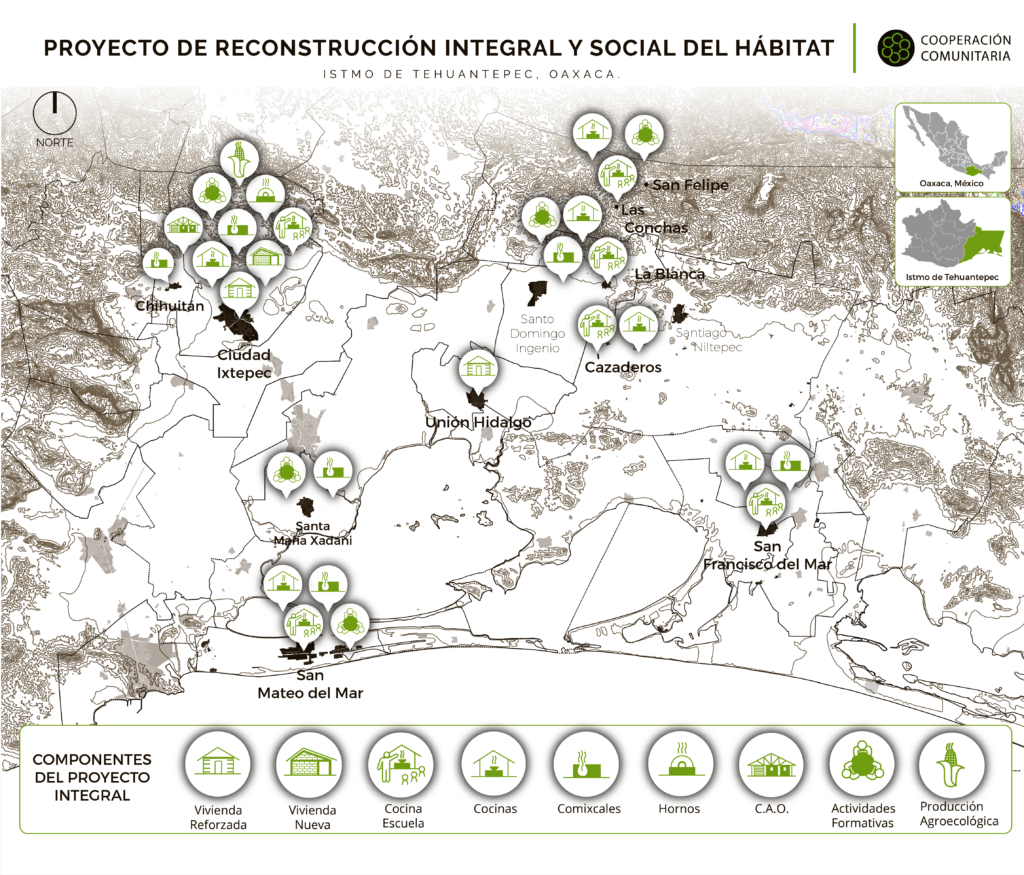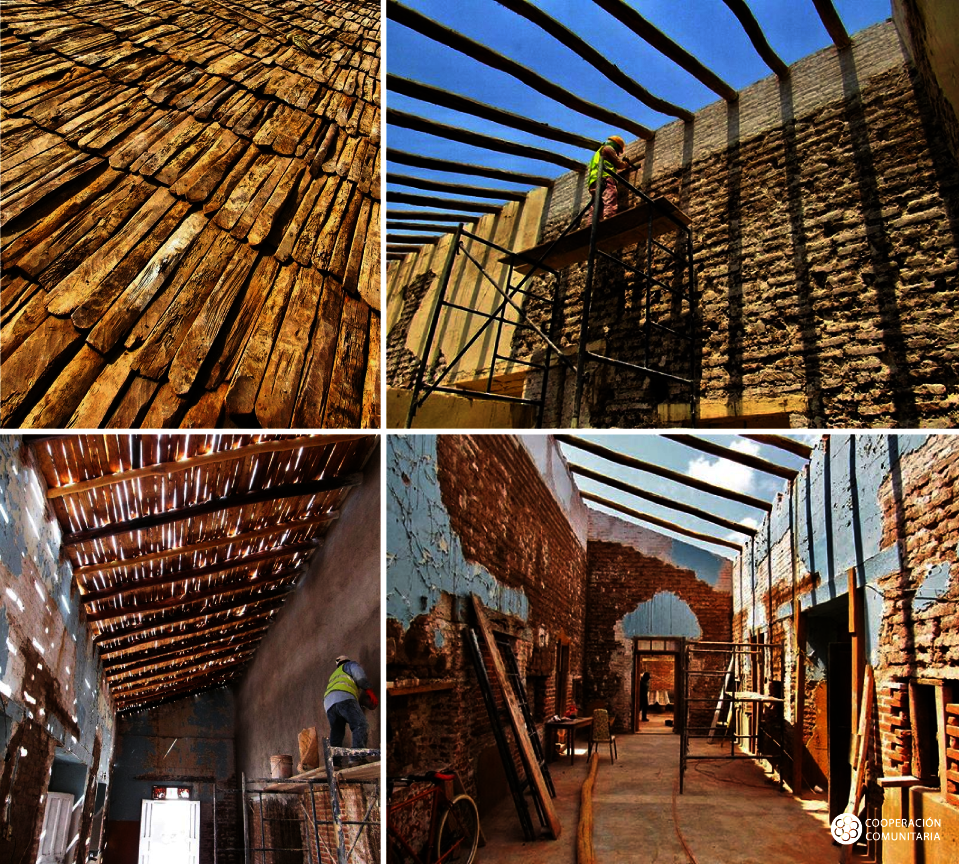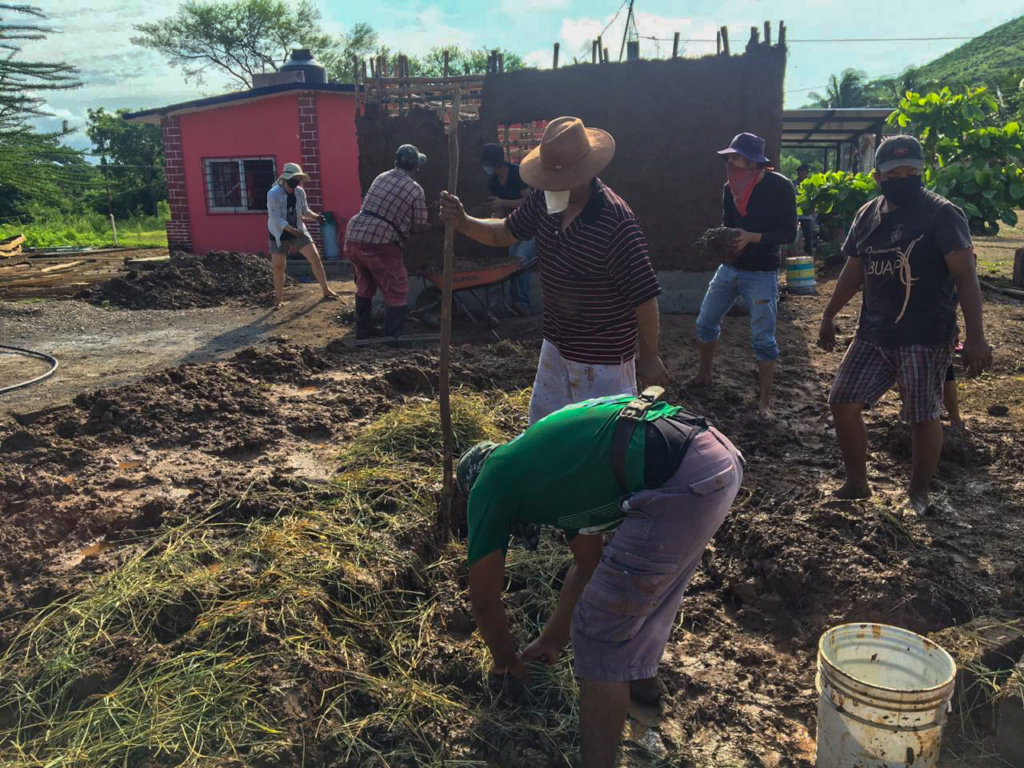By Cooperacion Comunitaria A. C. | Responsible of communication
We continue to implement strategies to face the challenges posed by the health emergency and the new reality. We have gradually returned to working in person only in those populations that are in orange at the Epidemiological risk light.The Epidemiological risk light is a monitoring system implemented by the Mexican state for the regulation of the use of public space according to the risk of COVID-19 contagion.
In this aspect, we have resumed the community workshops with safety measures, such as outdoor activities, social distance and tool sanitation. In comparison with previous community processes, we have had to reinvent and implement new communication strategies between and with the different groups. In relation to this, the work of local promoters and the use of technology have been indispensable for the exchange of knowledge.
Finally, the lessons that the health emergency has brought us so far, reinforce our conviction in self-management processes, circular economies and self-production.
Departure from San Mateo de Mar
The community of San Mateo del Mar is located in the Gulf of Tehuantepec and is made up of the original Ikoots people, most of whom are dedicated to fishing. It also maintains a community organization governed by its highest form of government: the People's Assembly.
The people of San Mateo have been living a political conflict with an economic background for several years. This conflict is opposed on the one hand by a long tradition of relationship with the territory and the defense of its biocultural heritage and on the other hand by an order that needs to adjust the territory for wind projects.
In this context, due to the growing climate of conflict and the lack of security guarantees for our team in the field, together with the local organization and the participants, we made the decision to stop the work and leave the community.
Although four kitchens remain under construction, we are constantly observing and evaluating the conflict to decide whether to return to complete the work.
Second stage of construction of traditional kitchens and ovens in La Blanca
Given the importance of the productive activity of women that was damaged by the earthquakes of September 2017, members of the community La Blanca asked us for a second stage of reconstruction of traditional kitchens and ovens, reinforced against earthquakes and strong winds.
In the second stage of this project, to date we have carried out:
We also concluded a very important part of the project which is the kitchen-school. For Cooperacion Comunitaria, training is of great importance as a complementary action to social production.
For this reason, the school-kitchen is the construction we began with, since the learning in this stage focuses on how the system of bajareque ceren works and the differences with the traditional bajareque used in the community.
The next step was the preparation of activities and materials for the construction of a total of nine kitchens, of which eight have already been completed.
Publication of the Manual of self-construction of kitchens with bajareque cerén
We publish the Manual of self-construction of kitchens with bajareque ceren, which was prepared by our team in conjunction with construction workers who have worked on the project of “Comprehensive and Social Reconstruction of Habitat Project in the Isthmus of Tehuantepec, Oaxaca".
The role of these construction workers has been invaluable, not only because of their constructive work and their willingness to systematize the lessons learned from this process, but also because of the important work they have done in bringing the model of reconstruction and accompaniment to other communities from which they themselves originated or which maintain community ties. Such is the case of the community La Blanca and more recently San Felipe and Las Conchas in the region of the Chimalapas Forest.
Reconstruction of heritage housing in Ciudad Ixtepec, Oaxaca
One of our interests is the recovery of the local constructive culture to strengthen the self-management of the population and to boost the regional economy. In Ciudad Ixtepec, we finished the reconstruction of heritage housing.
Among these, we repaired an adobe house with walls 90 cm thick (approximately 35 inches) and six meters high (approximately 19 feet) because some corners cracked during the 2017 earthquakes. We placed the biliguana, a wood extracted from a local cactus called balolo, which in the Isthmus of Tehuantepec was traditionally used to cover the roofs before placing the clay tile.
In this sense, traditional construction systems teach us what is required to make sustainable architecture and how to build an adequate home. For this reason, for us, technical training and self-management are indispensable for the true development of the participants during the processes of Social production of habitat.
Thermal performance studies in collaboration with the UNAM
In collaboration with the Laboratory of Sustainable Environments (LES for its acronym in Spanish) and the Laboratory of Procedures and Traditional Constructive Systems of the Faculty of Architecture of the Autonomous University of Mexico (UNAM for its acronym in Spanish) we carry out studies of thermal performance in the different construction systems to measure both the thermal mass and the thermal comfort inside the home.
The studies showed that when comparing the houses made based on one of the four traditional construction systems that we rebuilt, with the prototype of a reinforced concrete house made by private companies, the houses with greater thermal comfort were those of adobe, followed by of bajareque and brick; Likewise, the one that showed the least thermal comfort was the reinforced concrete house.
Good Practice recognition
Within the National Reconstruction Program (PNR) coordinated by the Ministry of Agrarian, Territorial and Urban Development (SEDATU), it recognized projects that participated in the reconstruction after the 2017 earthquakes.
We are very pleased to share with you that Cooperacion Comunitaria received two recognitions in the Good Practices award. The first recognition was in the category of "Integration of the image of housing to the environment" and the second, for "Self-management practices in the social production of housing".
For our team these awards are very important, because they testify to the importance —not only of our work— but of the participatory and formative processes that we carry out within the Social production of habitat.
By Cooperacion Comunitaria A. C. | Responsible of communication
By Cooperacion Comunitaria A. C. | Responsible of communication
Project reports on GlobalGiving are posted directly to globalgiving.org by Project Leaders as they are completed, generally every 3-4 months. To protect the integrity of these documents, GlobalGiving does not alter them; therefore you may find some language or formatting issues.
If you donate to this project or have donated to this project, you can receive an email when this project posts a report. You can also subscribe for reports without donating.
